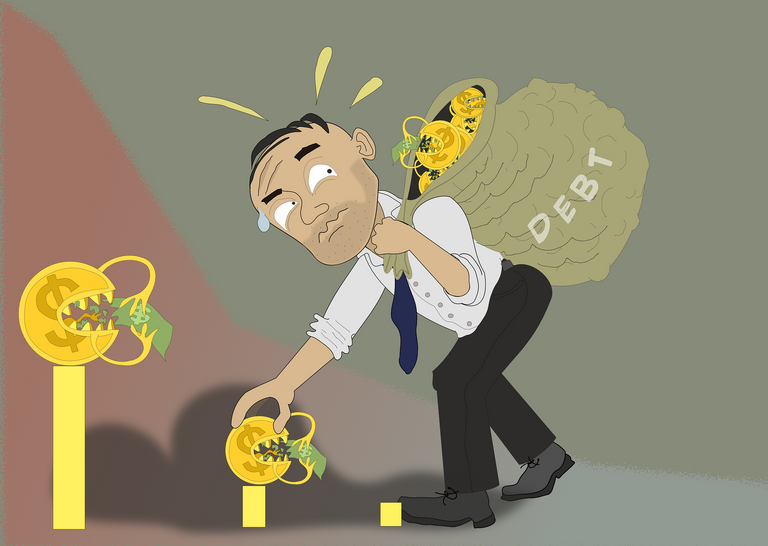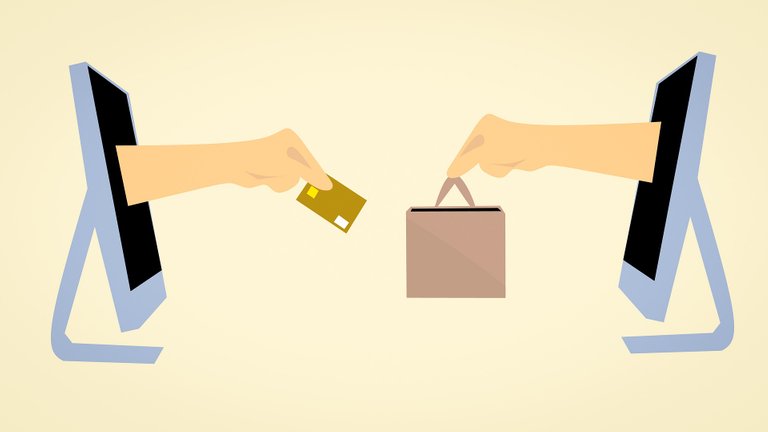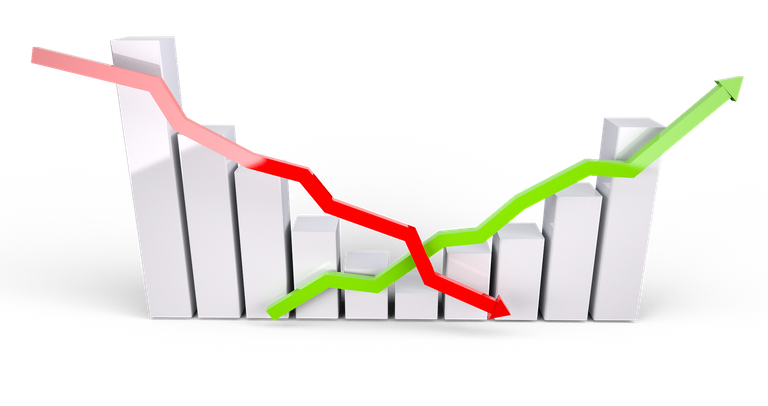
Economics Front - Consumers: The Most Irrational Actors
One of the most significant reasons that economics as a discipline is flawed and horribly inept at predicting future behavior is that most economic models are based on a set of assumptions. Paramount in these assumptions is that the parties involved in the model are rational actors. However, people in general are not rational when making consumer choices.
This is a simplification, but rational actors make decisions based on net value. If you have read my earlier posts, you will know that most people are either very bad at determining an accurate value or they are just too lazy to go through the motions to begin with.
For example: If you are borrowing money at 10% annually from a lender to buy something of value. The item you buy should at least increase in value faster than the 10% interest you are paying on the loan. If not, you're losing money. This is why credit card debt, which is often much higher (15% or more), is usually a poor decision since the items purchased rarely achieve any appreciation at all. There is nothing like financing your lunch at your favorite fast food joint. On the flip side, mortgages on property are often good investments because they tend to appreciate over time, but on a 30 year loan, is there a positive net value? Many times people pay millions of dollars for a piece of property worth a fraction of that price.

A Lesson in Perceived Value
Last December (2017), I attended a conference where a neuro-economist gave a presentation on the irrationality of consumer decision making. I had never heard of this sphere of economics, but it fell in line with much of the behavioral studies that I've reviewed and studied over the years. The speaker gave a number of illustrations of how consumers make poor spending decisions.
My favorite was a survey done with a large sample group that was asked the following question:
We will give you $1 dollar today for free, or if you come back tomorrow we will give $2. Which would you prefer?
The vast majority of the participants took the $1.
However, when asked which they would prefer if they would get $1 in 100 days or $2 in 101 days, nearly everyone chose the $2 variant. The most common answer describing their thought process in the decision was that if they had already waited 100 days, then another day would be worth the extra $1.

This reminded me of another study that was done when I was an undergrad. In that study, students who lived on the university campus were asked 2 questions:
- There is a new video game or DVD that you want to buy. You are going to buy it one way or another. You have two choices. You can buy it on campus at the bookstore for $20 or you can walk to the electronics store in town (1 mile - 1.6 km) and buy it for $5. Which option will you use?
The overwhelming majority of the students chose to walk to town and buy it to save $15.
- You need a new notebook/laptop computer. You are going to buy it one way or another. You can buy in on campus at the bookstore for $1000 or you can walk to the electronics store in town (1 mile - 1.6 km) and buy it for $985, Which option will you use?
The overwhelming majority of the students chose to buy it on campus.
The absolute value in both examples is the same and yet people most often make a decision that is not rational. So, why do that happen?
The Flaws of Thinking in Percentages
The most common explanation for people's irrational consumer behavior is that we tend to look for value in percentages and not in absolute value. Therefore, in the second study, the students saw a 75% discount in buying the video game or DVD and were eager to take advantage of it. Unfortunately, they were not eager to save 1.5% even though the total savings was the same and the purchasing conditions didn't change.
This type of flawed thinking is evident everyday in the news and either the media that reports these items fails to grasp the concepts on which they are reporting or they just know/think that we as consumers are stupid enough to buy into them.
Here are some of my favorite examples:
A country's national debt is often expressed as a percentage of their GDP. Forget that nations like the U.S. are 20 TRILLION DOLLARS PLUS in debt because as a percentage of GDP, it's all good. At least that is what they would like us to think.

Let's follow that rationale with normal people. If I'm the richest guy in the neighborhood, then I should have more debt than everyone in my neighborhood? What a stupid premise. Most wealthy people carry little debt to income because, as we discussed earlier, most rational people borrow money at rates lower than the net value of what is being purchased. Most banks lend on this same premise so they have an asset as collateral. What is the collateral for U.S. government borrowing?
Here's another:
Russia's national defense spending is over 5% of its GDP! OMG, the Russians are spending so much money on their military. Clearly they have designs on some neighboring country. Uh wait. Russia is the largest country by size, the 10th largest by population, and is only the 3rd largest spender on defense.

The largest spender: The U.S. and it isn't even close. The U.S. spends over $600 billion (officially), which is more than the next 8 nations combined (according to President Obama in 2016). However, since it is only a little over 3% of its GDP the U.S. gets a free pass. Nevermind that China (2nd place in total spending) is larger by size and population than the U.S. and only spends roughly $125 billion on defense.
The lessons here should be fairly obvious. Measuring expenditures in terms of percentages is deeply flawed. In total dollars, the U.S. spends three times more than China and Russia combined. Who should we really be worried about having designs on their neighbors (or anyone in the world for that matter).
Concluding Thoughts
Don't blame the economists when things don't turn out like they predict. Usually, they even know that things won't turn out the way they predict. No matter how much time we spend on modeling, Nash Equilibrium game theory practice, or even our attempts to blatantly influence markets (cough cough Central Banks cough cough), we inevitably fail because people are people. Economists could just as well try to predict the weather (another horribly flawed predictive practice).

When we make personal spending choices or when we are evaluating information (especially financial), we really need to beware of the use of percentages. Real value most often needs to be approached in absolute terms.
If I was the Washington Post, I would tell you that I spent 95% of my working day on this article. Conversely, I actually have some integrity so I will confess that it was only about 3 hours. Yes, I'm pretty lazy.

Like this article? Please share, upvote and comment.
Don't like it? Comment and tell me why. Let's discuss it.
All intelligent comments get an upvote for effort.
Send me a copy of one of your posts and I will try to read it quickly.
All photos were downloaded from https://pixabay.com/
Follow me on:
Facebook - https://www.facebook.com/jr.byers.58
VK - https://vk.com/id185155240


As a psychologist, this stuff is like buttered biscuits and honey to me. I enjoyed this post immensely. My husband found you in his general rambling through Steemit. We both hope we'll be seeing you some more.
Meanwhile, this excellent post was included in our new curation effort The Magnificent Seven -- a collaborative work by @enchantedspirit and @catweasel. You have received a 100% upvote from each of us to show our appreciation for your post. To see your creation showcased here ... and the fine company you keep ... please visit this link.
Magnificent Seven posts. He's really not as annoying as you might think. <--- He always makes me say that.)We appreciate your support both for our work on this project and for the other creators of exceptional content who make it all possible. (Follow @catweasel to catch our future
What a terrific post! This summer I was in a weird space with lots of time on my hands and not much to do, so I read Nate Silver's "the Signal and the Noise" about predictions and how they work (or more likely don't work).
Late in the fall I got a free copy of Richard Thayler's "Misbehaving" and read it.
The two of those together make for a great background for your post. Makes me really glad I read them.
Thanks for a really great post that just happens to be my first effort on Qurator. What an auspicious start.
Thanks for the detailed reply. I have a copy of the Signal and the Noise sitting on my desk in the U.S. I need to get back there and read it on plane back here. I'm glad you enjoyed the post.
@originalworks
Peace, Abundance, and Liberty Network (PALnet) Discord Channel. It's a completely public and open space to all members of the Steemit community who voluntarily choose to be there.Congratulations! This post has been upvoted from the communal account, @minnowsupport, by EnergyAddict from the Minnow Support Project. It's a witness project run by aggroed, ausbitbank, teamsteem, theprophet0, someguy123, neoxian, followbtcnews, and netuoso. The goal is to help Steemit grow by supporting Minnows. Please find us at the
If you would like to delegate to the Minnow Support Project you can do so by clicking on the following links: 50SP, 100SP, 250SP, 500SP, 1000SP, 5000SP.
Be sure to leave at least 50SP undelegated on your account.
You got a 4.00% upvote from @mercurybot courtesy of @energyaddict22!
Sneaky Ninja Attack! You have been defended with a 4.43% vote... I was summoned by @energyaddict22! I have done their bidding and now I will vanish...Whoosh
This post has received a 1.80 % upvote from @aksdwi thanks to: @energyaddict22.
This post has received a 17.43 % upvote, thanks to: @energyaddict22.
This post received a 1.050 SBD (13.17%) upvote from @upvotewhale thanks to @energyaddict22! For more information, check out my profile!
Nice post. Informative and thoughtful. Haven't thought as much about economics since I read Jeffrey Sach's The End of Poverty as I have in the last month reading about Bitcoin and other cryptocurrencies. Your post makes me want to continue.